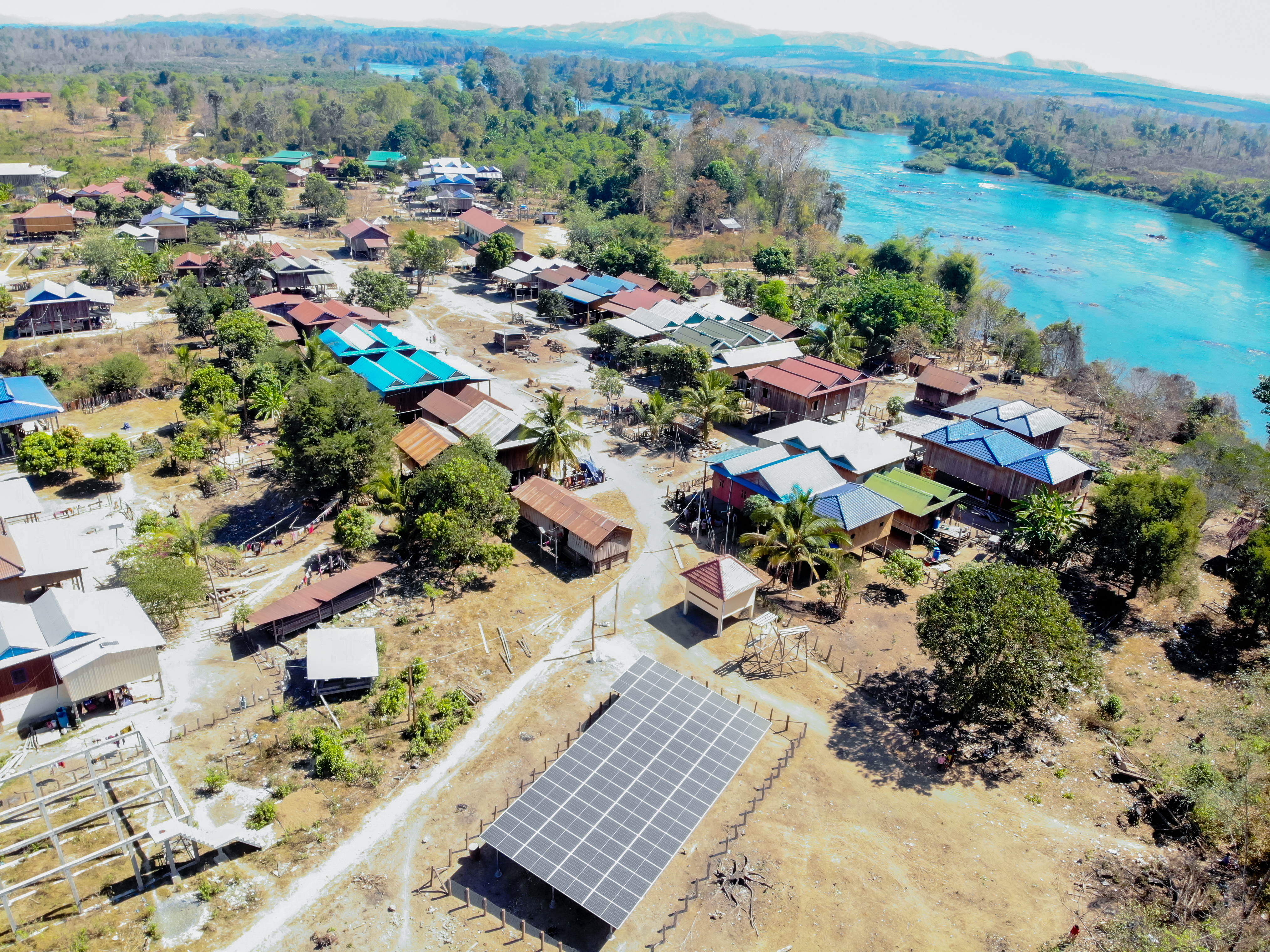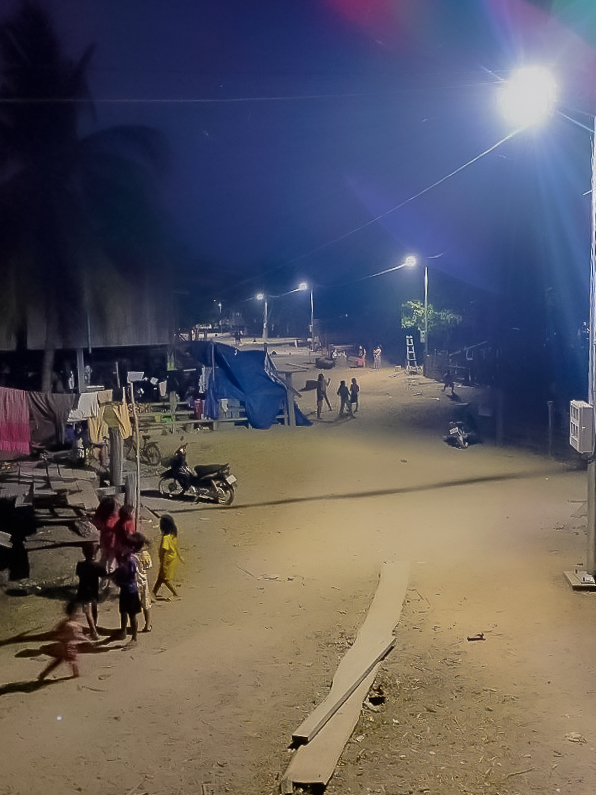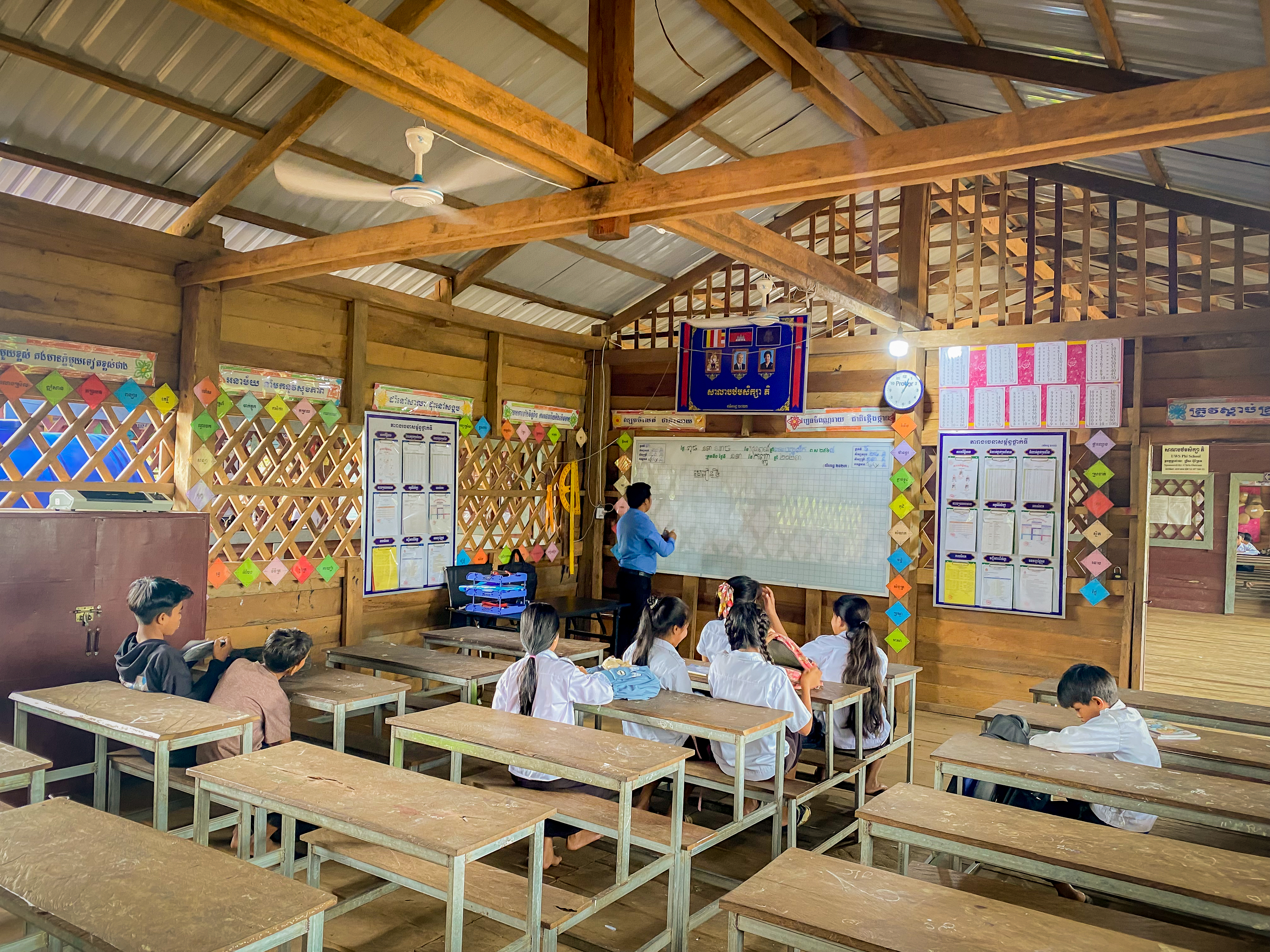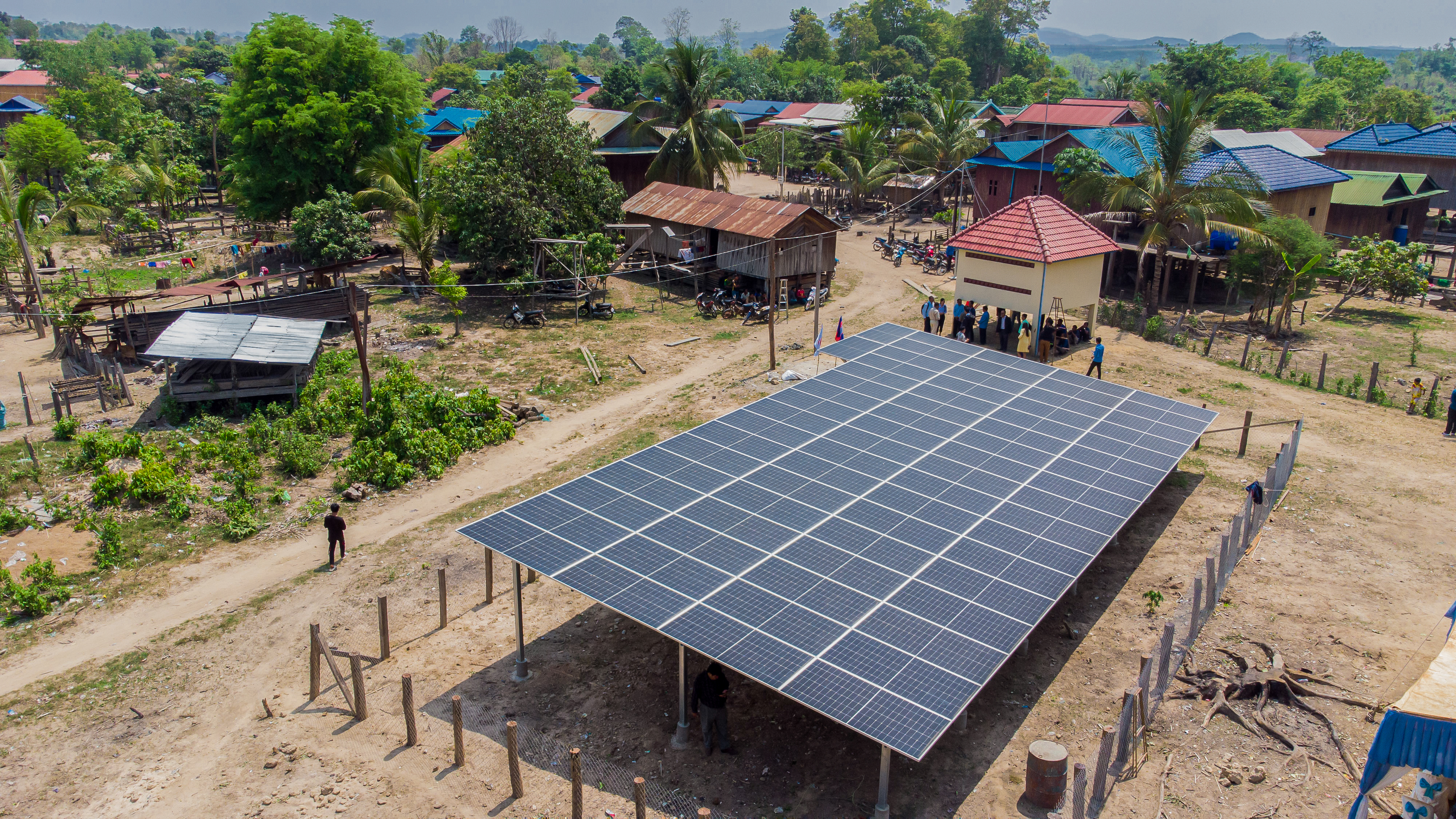By Sreylen Hak, Project Coordination Officer (IREARA) & Emily Shorrock, Gender Analyst
Solar mini grids illuminate remote indigenous communities in Ratanakiri province
December 21, 2023

The solar mini grid in Jarai indigenous community in Phi village along the Sesan River in Ratanakiri province, supported by the Government of Japan.
In the short span of just over 20 years, the Royal Government of Cambodia (RGC) has achieved rapid and unprecedented progress in providing electricity to villages across the country, from just 6.6 percent in 2000 to a staggering 98.87 percent in 2023 [1] of villages are linked to the national grid.
While that progress is remarkable, it is the last mile that is proving to be a stubborn challenge.
Just 160 villages are left with no access to an electricity grid, and they are classified by the Electricity Authority of Cambodia (EAC) as “hard to reach” because of the remoteness of the terrain, remoteness and economic viability. Remoteness grid villages rely mostly on solar home systems (SHS) and rechargeable batteries, which are costly and unreliable. For such areas, solar mini-grid systems are an affordable and clean energy option.
Now the RGC is trying to close the energy gap by providing off-grid villages with affordable and reliable electricity access using these renewable energy mini-grids, to achieve universal electrification and mitigate the impacts of climate change. Accordingly, the Ministry of Mines and Energy (MME) in partnership with the UN Development Programme (UNDP) have been installing mini-grids powered by solar photovoltaic (PV) and battery energy storage system for 24/7 electricity access in remote and insular communities.
Several mini-grids are up and running providing access to reliable electricity to homes in remote off-grid villages, such as indigenous communities in Ratanakiri province. In evenings that were once dark, homes and streets are lit up enhancing public safety and wellbeing. People can now study, charge their mobile phones, listen to the radio, watch television, or cook using electric cookers.
The installed solar mini-grids are also saving time spent by women on household chores. Indeed, with the use of solar energy to power water pumps and stoves some women no longer have to walk long distances and spend hours fetching water or collecting firewood, which is allowing them to invest more time in other productive activities and interests. For instance, with solar-powered refrigerators and freezers shopkeepers expanded the list of products sold in their grocery stores. This was also shared by Ms. Va Lerng, a 27-year-old shop owner living in the remote mountainous Ta-Bouk Mondul Yorn community. Ms. Lerng can sell cold soft drinks and preserve food using a small refrigerator, significantly increasing her income.

Children playing outdoors in the evening in Phi village, solar-powered streetlights have made it for them to play outside safely in the evening or the nighttime.
“Before I earned around 50,000 riels (approximately USD 12.5) per month from selling beverages, but now with my small fridge, I earn between 100,000 and 200,000 riels (around USD 25-50),” she said. She added that her fresh meat and vegetables are no longer wasted thanks to the fridge that keeps them from spoiling.
Significant impact on youth and education
Access to energy is also benefiting rural schools through better access to clean water and sanitation, improving as such hygiene. For students, it means more time to do homework even late in the afternoon.

Classroom equipped with fans and light in Phi Primary School.
In Phi village, home to the Jarai indigenous people who live along the Sesan River, the local school has now fans and lights, which enhance the classroom experience for both teachers and students.
Klan Keo, a 13-year-old six grade student in Phi primary school says: “It is cooler and better to sit in a classroom with a fan during afternoon classes. Before the heat irritated me a lot, but now I can concentrate better.”
She added that before having electricity, doing homework in the evening was difficult. She could only spend an hour with a battery-powered light powered. Now she takes her time and studies for two hours in the evening.
Ms. Alissar Chaker, Resident Representative of UNDP Cambodia said, “Access to electricity is pivotal for empowering marginalized communities because it enhances their livelihoods, creates new opportunities for growth and improves eventually their wellbeing. Our goal is to support the 160 off-grid remote villages in the country that have no access to a reliable source of electricity so that no one is left behind.”

[1] EAC, 2023. Salient features of power development in the Kingdom of Cambodia Until December 2023. https://www.eac.gov.kh/uploads/salient_feature/english/salient_feature_2023_en.pdf.

 Locations
Locations



